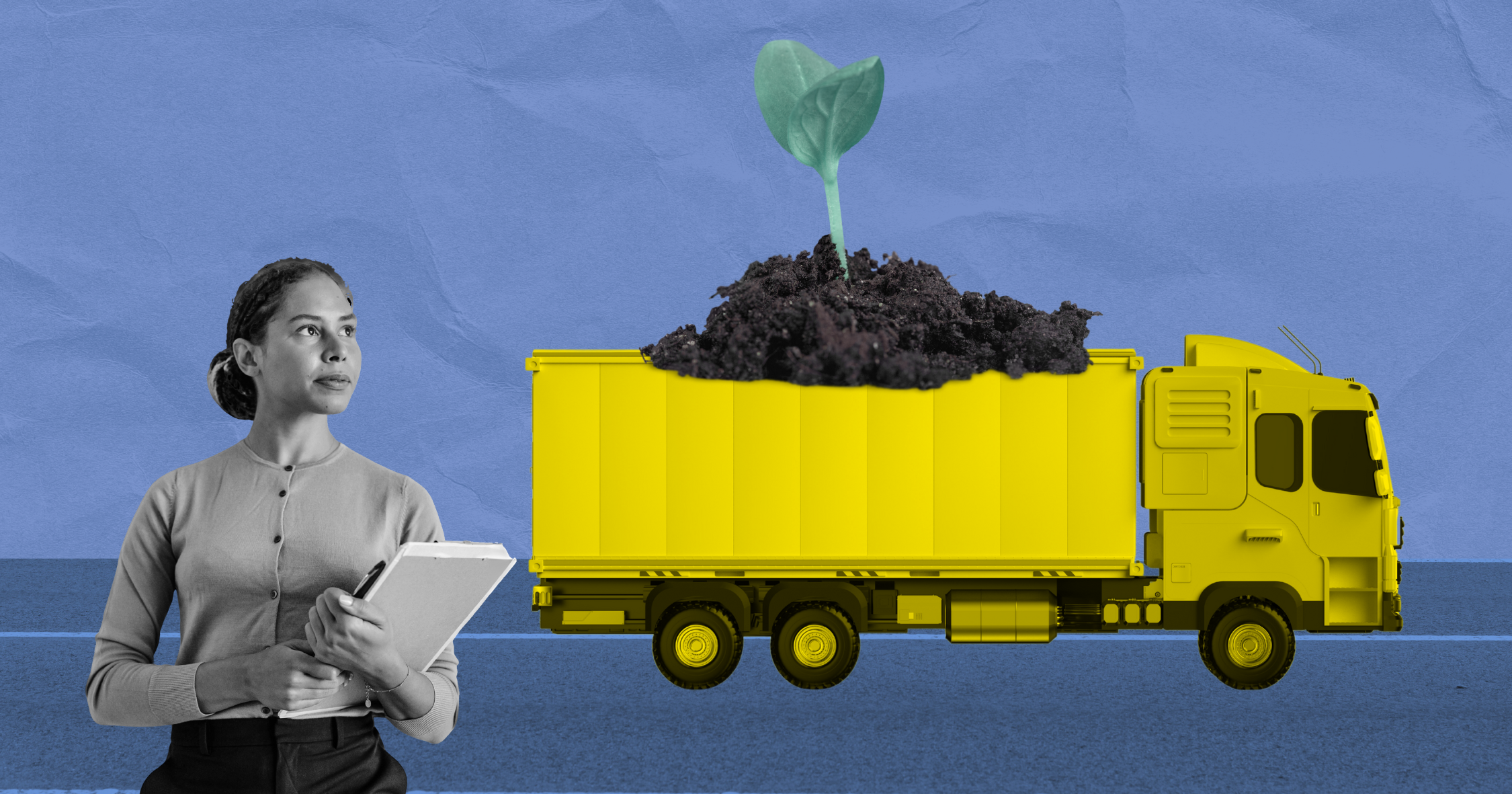.png)
Jamie McCrary
As climate concerns grow, companies are shifting their supply chain priorities from speed and cost to long-term sustainability. The urgency is clear: An estimated 40 percent of supply chain emissions could be reduced through accessible, cost-effective strategies, according to the World Economic Forum.
For future business leaders, understanding how to design and manage more sustainable supply chains is quickly becoming essential. Below are key strategies and trends every aspiring supply chain manager should know.
What is Sustainable Supply Chain Management?
Sustainable Supply Chain Management (SSCM) is the practice of integrating environmental and social considerations into the sourcing, production, and distribution of goods. It aims to incorporate sustainability principles into each stage of the supply chain, from strategic planning to product delivery.
The goal? To minimize a company’s negative impact on the environment while ensuring efficiency and a strong bottom line.
Why is SSCM Important?
By building sustainable supply chains, companies can drastically reduce their greenhouse gas emissions (GhG), the primary pollutant of supply chains. Globally, supply chains account for more than 80 percent of GhG, as well as 90 percent of negative impacts on air, land, and water resources.
SSCM also provides meaningful business benefits, including enhanced profitability and brand image. Sustainable supply chains reduce waste, minimize energy output, and improve efficiencies—all activities that reduce production costs.
Companies that use SSCM also improve their reputation and trust with stakeholders. This can help differentiate their brand in the marketplace, which directly influences sales.
5 Sustainable Supply Chain Management Strategies
To implement SSCM effectively, companies must collaborate closely with suppliers, manufacturers, and procurement teams at every stage of the supply chain. They should also evaluate their practices using the environmental, social, and governance (ESG) framework.
Successful SSCM requires strong supplier collaboration, compliance with global standards, and a balance between sustainability investments and profitability, as well as integration of the triple bottom line (economic, social, and environmental sustainability)."

Ayman Omar
Professor of Information Technology and Analytics, Kogod School of Business
Several Key Strategic Focus Areas Include:
- Supplier selection. Companies should evaluate whether suppliers share similar sustainability goals and values, which helps ensure they meet essential standards around emissions and waste reduction. Strategies include evaluating suppliers’ environmental policies, labor practices, and emissions reporting.
- Waste reduction, especially in product design. Globally, an estimated $163 billion of supply chain waste is created each year due to overproduction. To mitigate this harm, companies can apply circular economy principles to both product design and the overall supply chain. Strategies include reducing the amount of packing used, adopting compostable practices, and utilizing recycled materials.
- Green logistics. Freight transportation is a significant source of carbon emissions. Companies can mitigate this by consolidating shipments, optimizing routes, and using more fuel-efficient vehicles.
- Supply chain visibility. Tracking goods helps monitor suppliers’ environmental and social practices. Technologies such as IoT and blockchain are crucial for enhancing this visibility.
- Training and education. By investing in sustainability training for employees, companies can create a culture of sustainability and buy-in for eco-friendly processes.
The Future of Sustainable Supply Chain Management
Emerging technologies are rapidly transforming how supply chains are managed. Artificial intelligence (AI), for example, enables organizations to analyze vast amounts of data in real-time—improving risk assessment, forecasting, and supply chain visibility.
Blockchain is another game-changing tool. Platforms like IBM Food Trust utilize blockchain to track a product’s journey from origin to destination, thereby enhancing transparency, traceability, and consumer trust.
At the same time, sustainability is becoming a core business imperative. Governments worldwide are introducing stricter regulations to ensure responsible supply chain practices. In Europe, this includes supply chain due diligence laws in countries such as Germany, as well as the EU’s 2024 Corporate Sustainability Due Diligence Directive (CSDDD).
Studying Sustainability at Kogod
Kogod’s MS in Sustainability Management gives students the tools to lead in this evolving field. The program combines sustainability science with business strategy, emphasizing the use of emerging technologies such as AI, machine learning, and IoT to manage ethical supply chains.
Through hands-on coursework and access to the Institute for Applied Artificial Intelligence, students gain experience applying data analytics to real-world challenges. Whether modeling emissions reductions or improving supply chain visibility, Kogod prepares students to drive measurable impact in a data-driven, global economy.
Sustainable supply chain management isn’t just good for the planet—it’s a strategic advantage for businesses. By embracing tools like AI and blockchain, tomorrow’s leaders can drive real impact across global supply networks. For business students, mastering these practices now means stepping confidently into a future where sustainability and profitability are inextricably linked.
